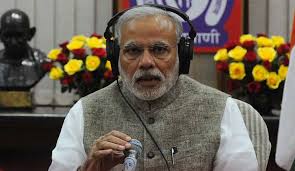Exploring the Impact of Mann Ki Baat on Indian Society

Introduction
Mann Ki Baat, a monthly radio program hosted by Indian Prime Minister Narendra Modi, has emerged as a significant platform for dialogue between the government and citizens. Launched in October 2014, the show aims to address pressing issues, celebrate extraordinary contributions from various communities, and encourage citizen engagement in national development. The relevance of Mann Ki Baat lies in its ability to bridge the communication gap between the leaders and the populace, serving as a channel for the Prime Minister to share his thoughts and listen to the voices of the people.
The Format and Content
The program typically lasts about 30 minutes and is broadcast on the last Sunday of every month. It is available in over 20 languages, making it accessible to a diverse audience. Each episode features themes ranging from social issues, cultural heritage, and innovation, to motivational stories of inspiring individuals. For instance, in recent episodes, Modi has spoken about the importance of cleanliness and environmental sustainability, urging citizens to participate in initiatives like the Swachh Bharat Abhiyan and tree plantation drives.
Public Participation
Mann Ki Baat encourages public participation, allowing citizens to share their insights or responses through a dedicated website, calls, and social media. This interactive element not only makes the citizens feel involved but also influencers and thought leaders, who bring forth their perspectives on various pressing issues. The memories and hopes shared by ordinary people create a collective consciousness that resonates with many others across the nation.
Significance and Impact
The significance of Mann Ki Baat is evident in its reach and the influence it has had on society. With millions of listeners tuned in each month, the program occasionally initiates nationwide campaigns that manifest in tangible changes. For example, the program has led to increased awareness regarding digital literacy and entrepreneurship among the youth. Furthermore, it has provided a boost to grassroots initiatives by spotlighting the commendable work done by citizens and communities, thereby inspiring further action.
Conclusion
Mann Ki Baat represents more than just a radio show; it’s an ongoing dialogue that fosters a sense of community and national pride. As the nation progresses toward its aspirations, the significance of platforms promoting mutual understanding, participation, and dialogue becomes even more crucial. In the future, Mann Ki Baat is predicted to evolve further, perhaps integrating more digital platforms for engagement, thus enabling an even broader spectrum of voices to be heard. This initiative not only keeps people informed but also amplifies their voices to power the nation’s growth and development.









